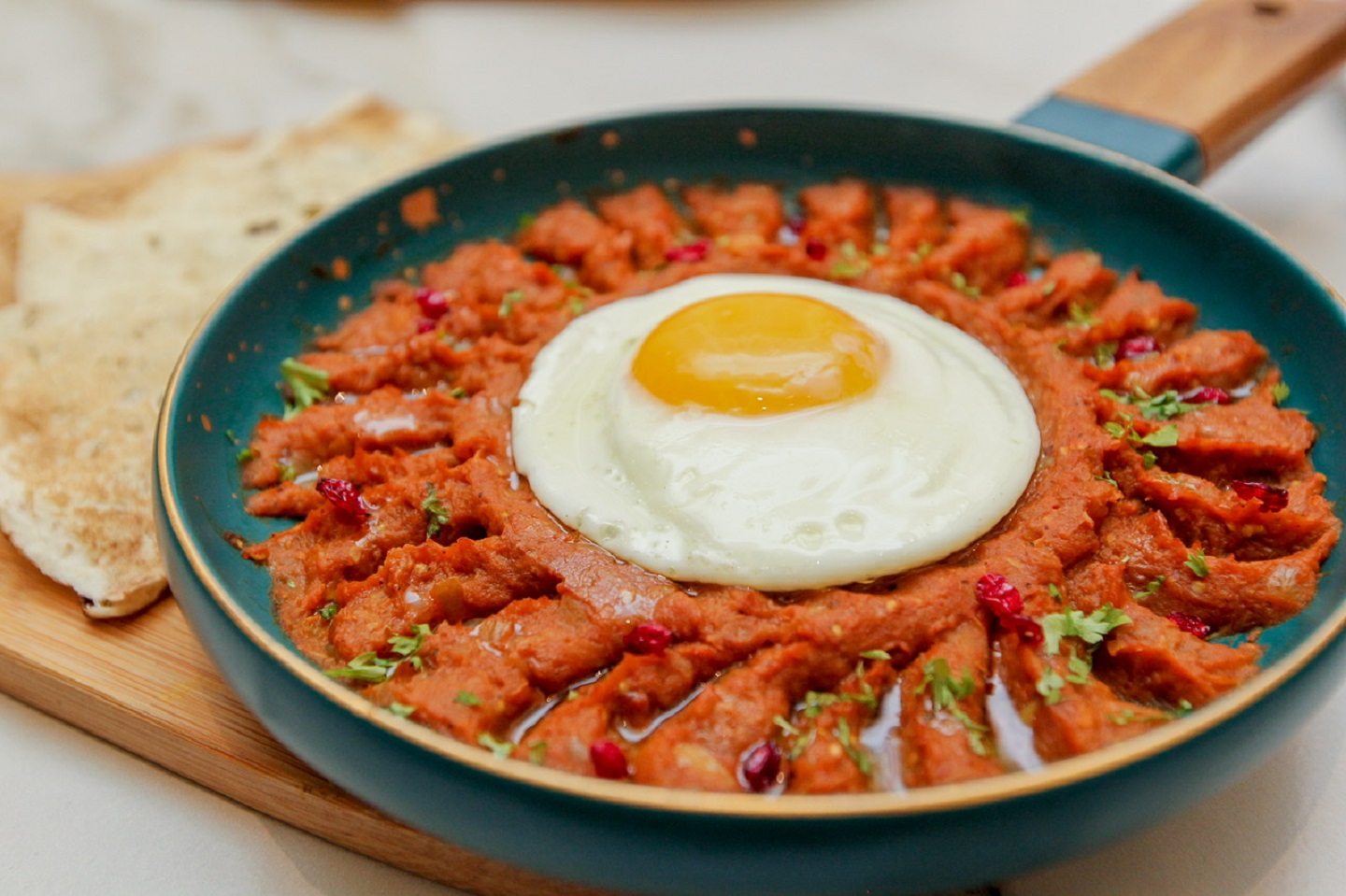
Soft-roasted eggplants with tomato and garlic (All photos: Mohamad Shahril Basri/The Edge Malaysia)
The cuisine of the Middle East and stretches of the great Silk Road might be united by religion, but the intricacies, nuances and distinctive way in which each country uses ingredients and cooking techniques offer a culinary compendium that is as dazzling as it is delicious. Inspired to bring to the table what Mohammedan travellers might experience, three friends from eclectic career backgrounds have come together to set up Oasis, a modern delicatessen focused entirely on Persian, Levantine and Eurasian ingredients and flavours.
Welcoming patrons since January 2022, Oasis is conveniently located in one of the shoplots surrounding the open-air car park in Taman Tun Dr Ismail’s Tun Mohd Fuad square. Those who have long suffered searching for a spot would appreciate this precious nugget of information. The combined trifecta of Taman Tun’s strategic location (in between Petaling Jaya and the neighbourhoods of Damansara Heights and Mont’Kiara just yonder), upwardly mobile urban population and increasing reputation as a foodie’s haven (the concentration of good restaurants and chefs in the area alone is staggering — from Darren Chin of DC, Bref and Gai fame, to Sachi Dining’s Akira Sano and Gary Anwar of Ember) makes Oasis’ opening gambit a calculatedly clever move.
1fd20c3a-8da1-4ab1-86a1-7c5ec4ea7de4.jpg
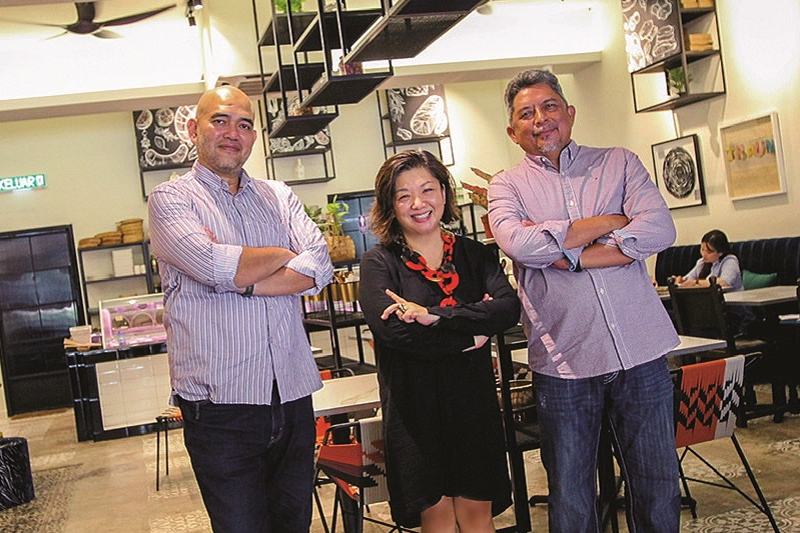
Naturally, the deli’s name was chosen to evoke a little haven of abundance — a refuge from harsh surrounds and, for those whose imagination is livelier than others, images of merchant caravans plodding through valleys and mountain passes before mercifully encountering a palm-shaded watering hole amid a sea of burning sand. “Our vision is to travel the Old Silk Road and experience in a modern setting its wonderful array of culinary offerings,” says Huey Chew, a renowned interior designer and one of Oasis’ trio of partners, along with merchant banker and venture capitalist Emeri Johari and Royal Military College old boy and former naval officer Ariffin Mohd Hashim.
“Each place on the Silk Road, be it splendid city, rich trading town or green oasis, has its own distinctive character and culture and yet is linked across desert and mountain to every other place. It was along the caravan trails that vegetables, fruit, grains and seasonings — and the techniques for cooking them — passed from one civilisation to another, to be absorbed and transformed into local specialties. Middle Eastern cuisine is only part of the rich tapestry of diverse flavours and gastronomic surprises that the Silk Road civilisations offer up. We have all travelled to various parts of the old Silk Road and had our own unique experiences of a lifetime, which identified with and stayed with us. I guess our interest was sparked after having experienced such exciting dishes and warm hospitality.”
3d6b9da6-a9f1-4573-8444-eb15c4e789f0.jpeg
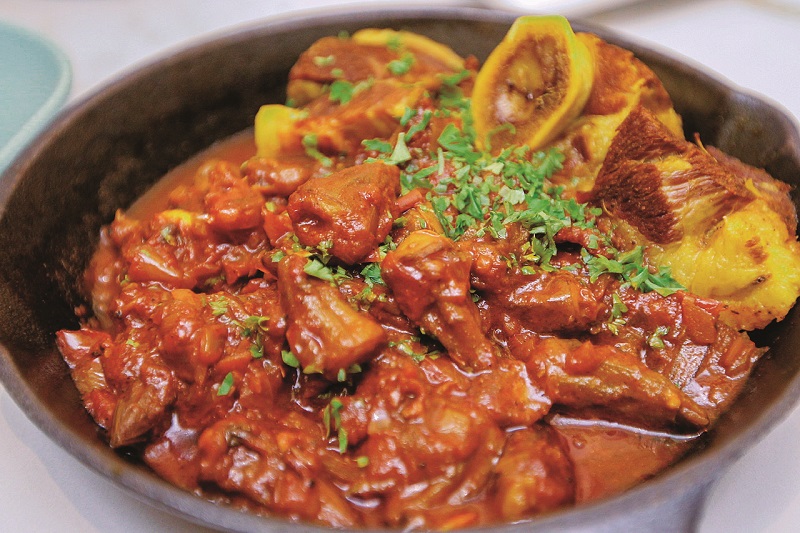
So, for example, if you miss Cairo and, along with it Abou Tarek’s famous koshary — a humble street dish of rice, lentils, beans, pasta, spicy tomato sauce and fried onions — or perhaps a substantial lamb stew sampled while trekking in the mountainous Black Sea region, feel free to pick up some ingredients to recreate it at home. There is much to delight the expert or wannabe home chef, from Palestinian extra virgin olive oil to Greek oregano, Syrian vinegar, saffron sugar sticks, fig jam with nuts, cardamom coffee and Iranian saffron. A bar counter (alcohol-free, naturally) is made extra arresting with the use of honeycombed tiles in different tonal gradations, delivering the perfect showcase for Oasis’ best-selling item — pure organic honey still on the comb. Oasis also uses only halal-certified Australian beef and lamb and delivery is gratis within a 5km radius. The staff are also incredibly helpful and friendly, sometimes treating you to a free cup of Turkish coffee, made using a spiffy Fiorenzato machine, while you wait for your groceries to be organised. If you prefer tea, there are two beautiful old samovars nearby, waiting to be called to duty.
It must be mentioned that a visit to Oasis is warranted, even if just to feast the eyes on the minutiae and attention to interior detail. Take note of the carpet motifs, painstakingly and artistically silk-screened right onto the polished concrete flooring. We were informed that making the mould alone took two months to perfect so they would not break apart during the screening process. Bright handwoven chairs, designed by architect friends using polypropylene, add subtle pops of colour. Customers are also welcome to place orders for the chairs (which are great indoors or outdoors, by the way), customisable according to their own preferred palette.
9f99eb11-23bf-4ef9-ac11-faf71d1e6b2e1.jpg
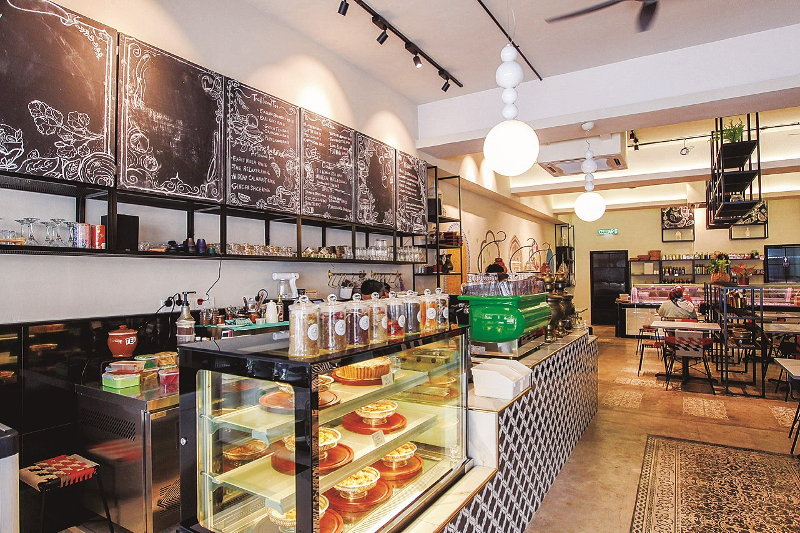
Speaking of palates, Oasis’ menu is all about feeding families as well as feasting with friends. Portions are generous and there is something to please everyone, from finicky under-fives to persnickety aunts. There is a selection of pizza and pasta but you can safely skip all that. Begin instead with the wonderful dips, best mopped up with as much flatbread as you can eat. The Hummus Tahinah (RM25) is a trusty choice but try also the Persian favourites of Mirza Ghasemi (RM35), soft-roasted eggplants with tomato and garlic, and Kashk Bademjan (RM35), also starring eggplant but with kashk, a thicker, saltier cousin of yoghurt.
Ordering kebab (RM30 to RM42), which takes its name from the Arabic for “roasted meat”, and koobideh (RM42 to RM44) are a given as is the kooftah (RM38), lovely little meatballs bathed in an appetising tomato-based sauce. With flatbread or rice served with most mains, you would definitely need another order of something with gravy and, here, we would recommend the famous Middle Eastern meat and okra stew known as Bamiya (RM45). The Yemeni Mandi rice, served with chicken or lamb shoulder, is aromatic and flavourful, redolent of Indian biryani but just differing slightly in technique and presentation. Here, the meat is not ladled right on top of the rice but served separately and neatly. The dish gets its punch from the liberal use of hawajj, a blend of spices often comprising but not limited to cumin, pepper and turmeric. Should all the meat, rice and bread prove a little heavy, lighten things up with an order of the roasted cauliflower (RM25). Resist the urge to order the special roast potatoes (RM25), though.
28036145-8940-43c0-8d54-c37f61fda38c.jpeg
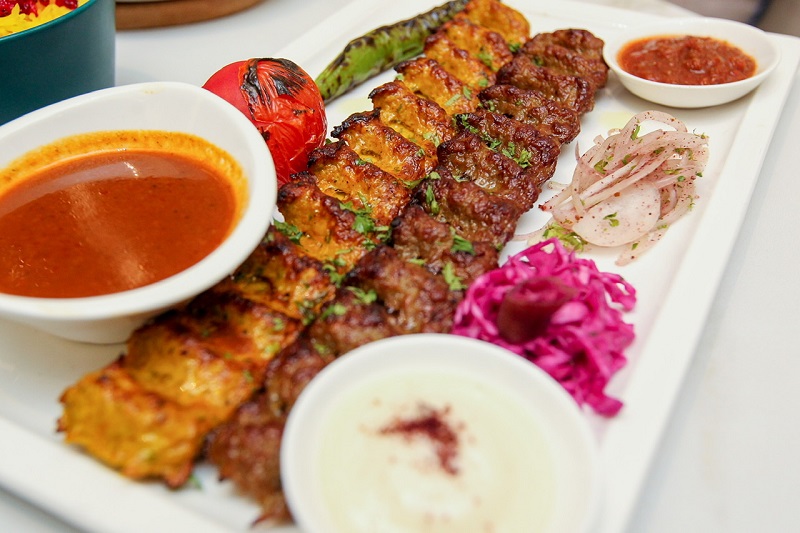
To help wash it all down, the pomegranate spritz (RM12) is refreshing. If you feel the need for something a little more exciting, order the Barbican (RM11). Frequent visitors to the Gulf countries would know it to be the most popular soft malt drink around — an alcohol-free beer, if you will.
There is also a dedicated weekend breakfast menu offering Kuku Sabzi (RM22), the Middle Eastern take on frittata, and, of course, Shakshuka (RM25). As the holy month of Ramadan has just begun, Oasis has launched several takeaway sets, perfect for breaking fast in the comfort of one’s own home. Choose from a variety of combinations that include smoked Mugharbi duck, lamb shank, saffron rice and a selection of baklava.
32 Jalan Tun Mohd Fuad 2, Taman Tun Dr Ismail, KL. Tues-Fri, 11.30am-10pm; Sat, 9.30am-10pm; Sun, 9.30am-6pm. Closed on Mons. 011 5413 1355.
This article first appeared on Apr 4, 2022 in The Edge Malaysia.


